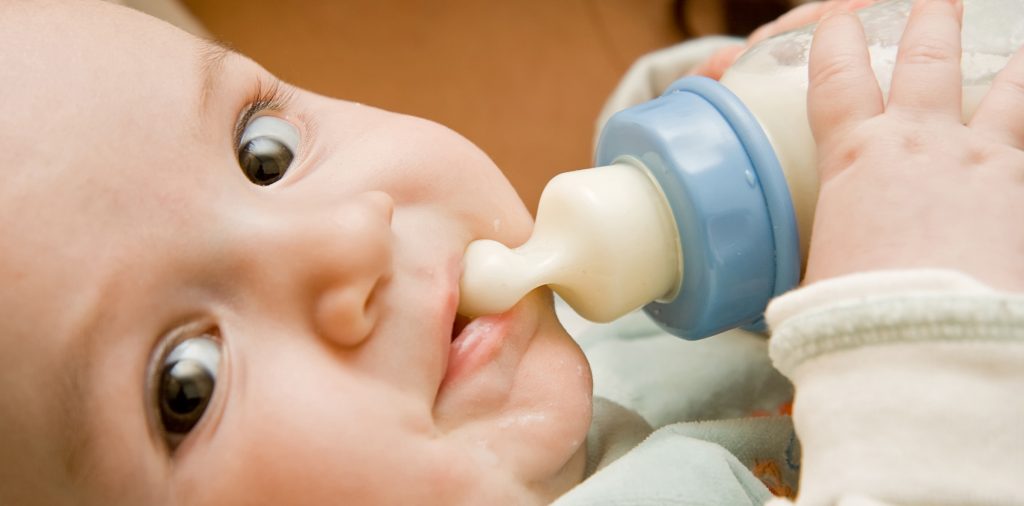Study: Limit Your Baby’s Bottle Size to Reduce Childhood Obesity Risk

(EnviroNews USA Headline News Desk) — A University of North Carolina at Chapel Hill (UNC) School of Medicine study found that babies fed formula in bigger bottles were at risk for increased infant weight and childhood obesity.
The study, “Bottle Size and Weight Gain in Formula-Fed Infants,” was published in June 2016 in the Journal Pediatrics and collected data from the “Greenlight Study,” which was, in part, “designed to inform evidence-based standards for early childhood obesity prevention.”
Baby bottle size can range from 2 oz. up to 11 oz. In this study, the weight of 379 infants using various bottle sizes, as reported by their caregivers, was monitored at two-month and six-month wellness visits. The UNC School of Medicine article on the study explained that infants who were fed formula from large bottles gained almost half a pound more than babies fed formula with small bottles. The study adjusted for potential confounders such as birth weight, gender, parent ethnicity and other factors.
Charles Wood, M.D., MPH, lead author of the research, pointed out that caregiver feeding habits also play a role in babies’ relationship to food. He said adults who bottle-feed babies should observe hunger cues and have an undistracted, “’bidirectional’ relationship during each feeding.”
Eliana Perrin, M.D., MPH is a senior author of the study and she explained that just as adults with larger plates tend to overeat, “the large size of the bottle combined with pressuring the baby to finish it may not be as healthy for our babies as remembering that we all have hungry days and less hungry days.”
Other studies have found that bottle-feeding instead of breastfeeding, high-protein formula and imposing adult feeding habits can all increase babies’ risk of obesity as well. A 2014 study in the American Journal of Clinical Nutrition reported high protein formulas increase obesity risk.
A 2013 Brigham Young University (BYU) study found formula-fed babies were 2.5 times more likely to become obese than breast-fed babies and that feeding habits such as putting a baby to bed with a bottle increased obesity risk. 2015 UNC Greensboro research reported that infants who receive human milk from a bottle instead of a breast may also have higher infancy weight gains. Perrin, Wood, and the rest of the UNC science team say more research is necessary into the association between obesity and bottle-feeding.
FILM AND ARTICLE CREDITS
- Julia Travers - Journalist, Author



